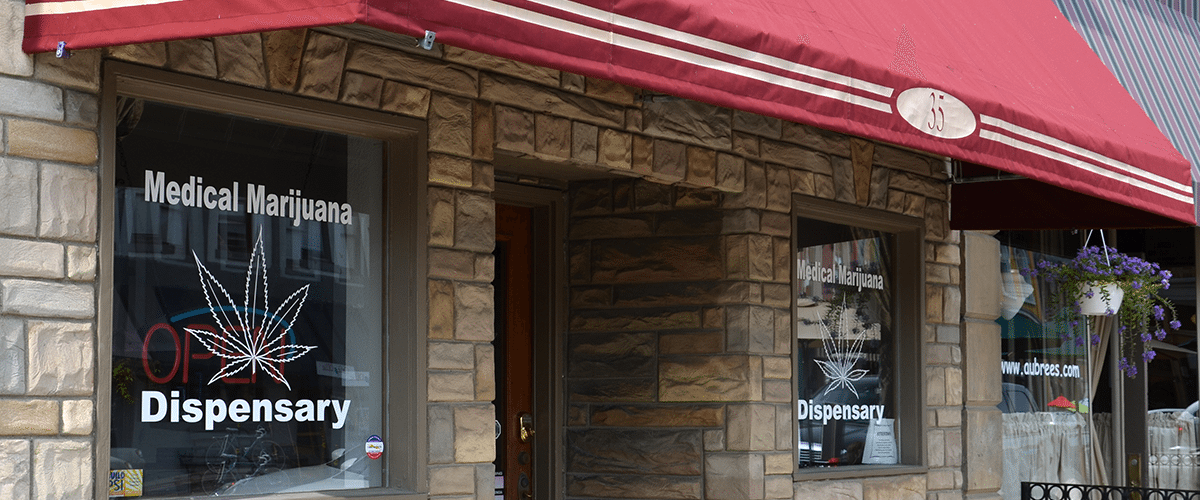[vc_row][vc_column][vc_column_text]Forty-four of the 50 U.S. states have now legalized marijuana to some degree.
With help from this past historic year for cannabis legislation, only six states remain in the United States that have yet to pass any marijuana-related laws. Twenty-eight states have enacted comprehensive medical marijuana legislation, allowing qualified patients to get access to full strength marijuana, and 16 others have adopted limited access marijuana product laws, giving patients the opportunity to incorporate low-tetrahydrocannabinol (THC) cannabis into their treatment regimens. Eight states have gone a step further and also legalized marijuana for recreational use.
The six remaining U.S. states without any cannabis legislation – Idaho, Indiana, Kansas, Nebraska, South Dakota and West Virginia – have made some progress, but most don’t appear to be close to adopting marijuana laws any time soon.
Idaho
Cannabis legislation efforts have been bleak in Idaho. This past legislative session, Idaho’s lawmakers failed to introduce a single cannabis-related bill. The previous year, Gov. Butch Otter vetoed a legislature-approved bill that would have protected seriously ill patients from possessing low-THC medical marijuana oils.
Indiana
The Indiana General Assembly introduced several medical marijuana bills in the 2016 session, but none of them advanced. Despite the inactivity from Indiana lawmakers, favor for medical marijuana seems to be growing among Indiana residents. A recent poll found that 73 percent of Indiana voters support legalizing marijuana for medicinal purposes.
Kansas
Several medical marijuana bills were introduced and considered by Kansas lawmakers in 2016. One low-THC medical marijuana bill actually passed the Kansas House of Representatives, but the initiative didn’t make it past the Senate.
Kansas did reduce penalties for marijuana possession this year. Since July 1, a first possession offense is punishable to six months, rather than one year, in jail. A second offense was reduced from a felony to a misdemeanor and is now punishable with a maximum sentence of one year, rather than three and a half years.
Nebraska
Nebraska had a couple of marijuana measures that came close to gaining ground this past year, suggesting that progress could come soon. Nebraska State Senator Tommy Garrett introduced the Medical Cannabis Act, a bill that would establish a comprehensive medical cannabis program. While the Senate passed the bill on the first reading, during the bill’s second consideration, a group of lawmakers launched a filibuster that prevented the bill from getting the votes it needed to be passed onto the governor.
Additionally, a proposed initiative that would have legalized medical marijuana failed to collect the required signatures to have the initiative placed on this November’s ballot.
South Dakota
Efforts to bring legal marijuana to South Dakota recently have fallen short. A ballot initiative by New Approach South Dakota failed to collect the required signatures necessary to qualify by the ballot. Additionally, the South Dakota Legislature introduced a low-THC, high-CBD oil bill this year, but it failed on the floor of the House.
West Virginia
Recent events suggest that 2017 could be a big year for cannabis in West Virginia. This past session, a comprehensive medical marijuana bill was introduced and then not addressed before the legislature adjourned. However, in a debate between the two major candidates running for governor, Democrat Jim Justice and Republican Bill Cole, both indicated that they were in favor of medical marijuana, with Governor-elect Justice even suggesting he could consider legalizing adult use. A West Virginia Center on Budget and Policy report from August suggests that legalizing marijuana in Virginia would bring in an estimated $45 million in tax revenue annually for the state.
Cannabis Products Legally Available to All Americans
Cannabidiol (CBD) hemp oil, which is derived from hemp rather than marijuana, is legal in all 50 U.S. states and in 40 international countries. The Food and Drug Administration of the United States considers hemp oil, which contains CBD, to be a dietary supplement.
CBD hemp oil products like Medical Marijuana, Inc.’s Real Scientific Hemp Oil™ and cannabidiol tinctures from Dixie Botanicals® can be purchased and consumed legally without the need of a physician’s recommendation or medical card. Our CBD oils contain only trace amounts of THC and will not make you high.
If you’re interested in learning more about our CBD hemp oil products, but are unsure where to begin, check out our Hemp CBD Oil Buyer’s Guide. After you place an order through our online shop, we’ll deliver your CBD hemp oil products to your doorstep.
You can read about the eight of nine states that approved marijuana measures this November. Keep up with the latest cannabis legislative developments by following our news feed.[/vc_column_text][/vc_column][/vc_row]






